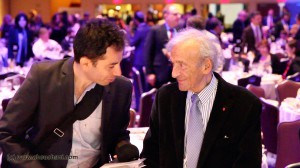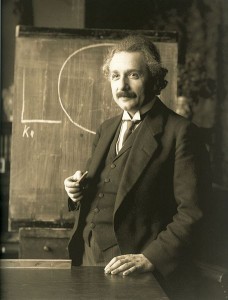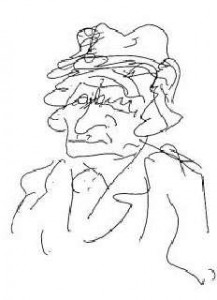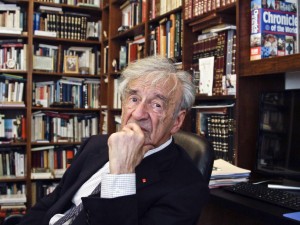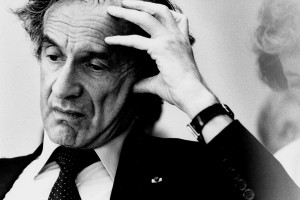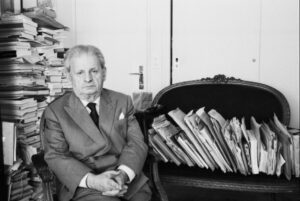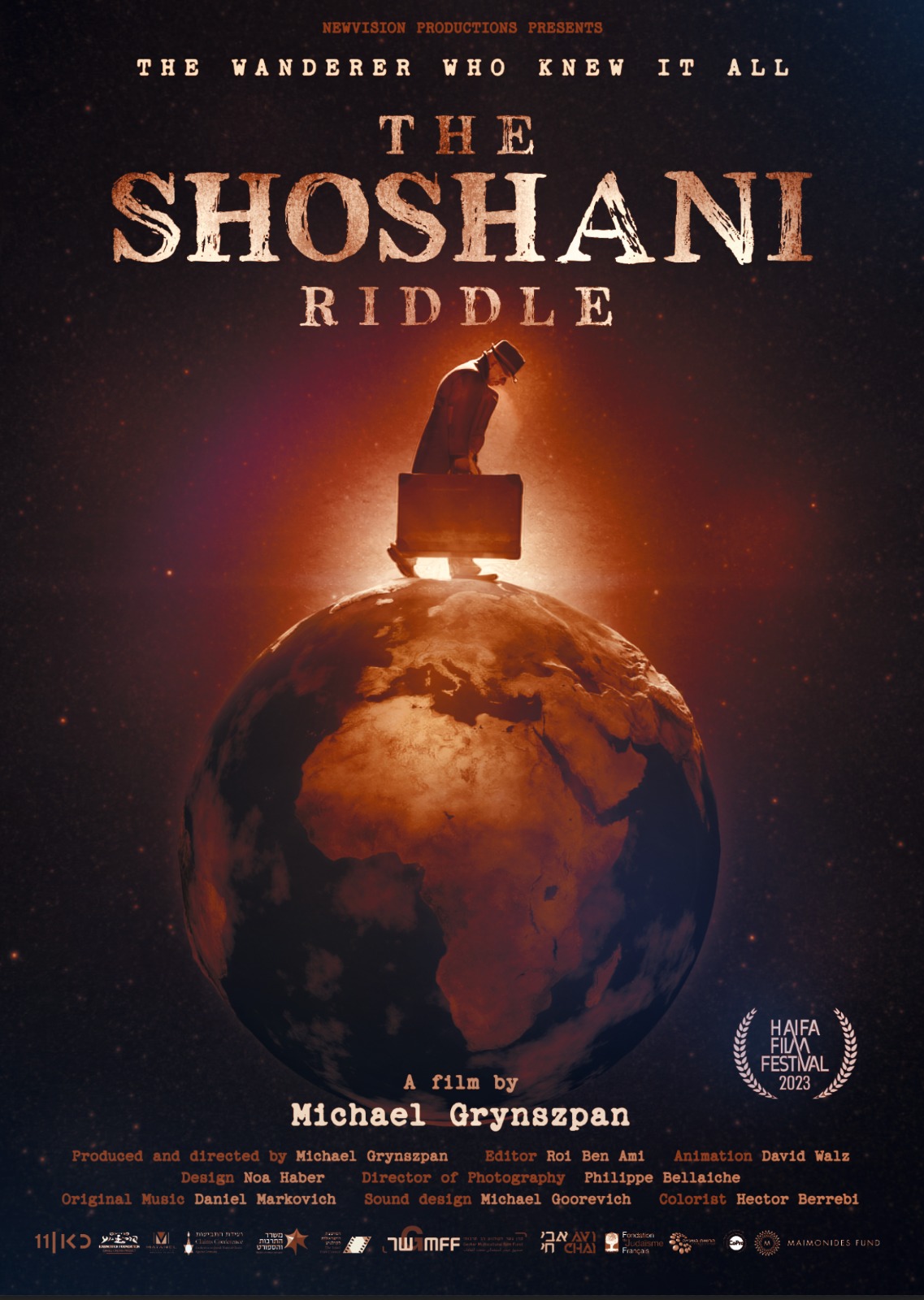Monsieur Chouchani (? – 1968), or “Shushani,” is the nickname of an otherwise anonymous and enigmatic Jewish teacher who taught a small number of distinguished students in post-World War II Europe and elsewhere, including Emmanuel Levinas and Elie Wiesel.
Not much is known about “M. Chouchani,” including his real name, a secret which he zealously guarded. His origins are completely unknown, and his gravestone (located in Montevideo, Uruguay, where he died in January 1968) reads, “The wise Rabbi Chouchani of blessed memory. His birth and his life are sealed in enigma.” The text is by Elie Wiesel who paid for this gravestone. The name “Shushani,” which means “person from Shushan,” is most probably an allegorical reference, or possibly a pun. Elie Wiesel hypothesizes that Chouchani’s real name was Mordechai Rosenbaum, while Hebrew University professor Shalom Rosenberg asserts that Chouchani’s actual name was Hillel Perlmann.
Although there is no known body of works by Chouchani himself, there is a very strong intellectual legacy seen in the influence on his pupils. By all accounts, Chouchani had the appearance of a vagabond and yet was reputed to be a master of vast areas of human knowledge, including science, mathematics, philosophy and especially the Talmud. Most of the biographical details of Chouchani’s life are known from the works and interviews of his various students, as well as anecdotes of people whom he encountered during his lifetime.
Chouchani appeared in Paris after the Second World War, where he taught between the years of 1947 and 1952. He disappeared for a while after that, evidently spent some time in the newly-formed state of Israel, returned to Paris briefly, and then left for South America where he lived until his death.
